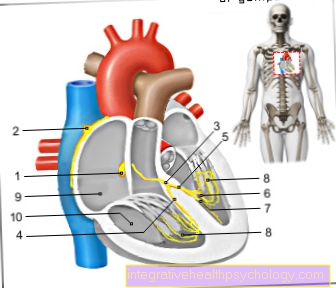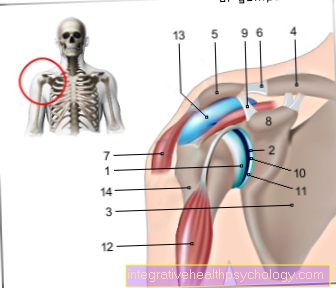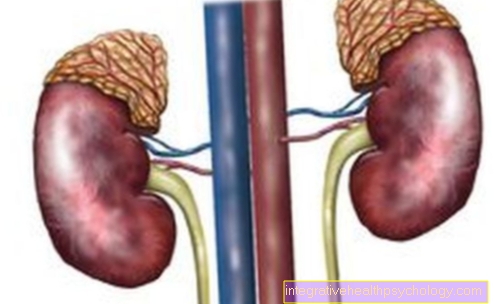Protein powder
introduction
Anyone who finally pulls themselves into shape after years of a comfortable lifestyle and wants to do something for their health will be confronted with numerous recommendations, prohibitions, commands and half-truths in the fitness world. Magazines, fitness trainers, athletes from their own circle of friends seem to want to make the start of a healthy, active life easier and in the end they only cause confusion.
Protein powder is a classic in the industry. Hardly any nutrition and training program, whether from a personal trainer or from a magazine, seems to get along without the supply of protein in powder form. We want to clarify here what purpose the powder fulfills and when the addition of protein powder can actually be useful.

What types of protein powder are there?
Of course, not all protein powder is the same as protein powder. Numerous providers compete in the market and present their products all the more numerous. But how exactly do the types of protein powder available differ?
Whey
Whey protein powders are favorites in the fitness world when it comes to muscle building and diet. Whey stands for whey protein and is characterized by a high content of branched-chain amino acids and essential amino acids. These are necessary for building up the body's own proteins and muscle mass.
Whey protein has a high biological value, which means that the body can easily convert it into its own protein. It is also easily soluble in water (and milk). Whey protein is available in different degrees of purity - this describes the pure proportion of protein in addition to carbohydrates and fat. A low carbohydrate content is often recommended, especially in the context of diets, as this reduces the amount of calories. Whey protein hydrolyzate (up to 99% protein content according to the manufacturer) or whey protein isolate (over 90%) should be used here. This results in a high protein intake with a lower intake of carbohydrates. It is different with the desire to gain weight and build muscle. Since an excess of calories is necessary for muscle building in addition to sufficient protein intake, whey protein concentrates can be used here. Here the protein content varies between 30 and 80%. In general, the purer the powder (i.e. the more protein it contains), the deeper consumers have to dig into their pockets.
You may also be interested in this topic: Muscle building and proteins
Casein
Casein powder is also a popular source of protein. In contrast to whey protein, it is metabolized less quickly and supplies the body with amino acids over a longer period of time.
Casein powder is taken in addition to whey powder by many athletes. Taking it before bed can protect the body from muscle breakdown by keeping amino acid levels high for longer.
Multi-component protein
The numerous protein powders each have different properties - these sources are combined in a multi-component protein in order to achieve an ideal, complementary amino acid profile. A common combination is casein, egg protein, and whey.
Soy protein, rice protein or pea protein are often found in multi-component proteins. Whether you prefer to use a mixture instead of a pure product depends on your personal goals. A distinction must be made between whether you want to lose weight or gain muscle.
Also read our topic: What should be considered when buying protein powder?
Weight gainer
Athletes who primarily want to build muscle mass can resort to so-called weight gainers. They are especially recommended for slim people who have difficulty building weight due to a fast metabolism (so-called hard gainers). In addition to proteins, they also contain carbohydrates and fats and are particularly rich in calories.
Without appropriate training, an excess of calories, whether through proteins or carbohydrates, leads to an increase in fat reserves; the consumption of protein powder alone does not lead to muscle building.
More on this: Weight gainer
Egg protein
Egg protein is extracted from the egg white. The moisture is removed from it, which creates the powder. Egg protein has a very high biological value and is optimally absorbed and metabolized by the body.
It is also lactose-free and can therefore be a good alternative for people with intolerance. Egg protein is also particularly low in calories and is suitable for diet phases. Only the slightly bitter taste is a small drawback of the otherwise great alternative to the classic protein powders.
also read:
- Building muscle with amino acids
- How high is the protein content in the egg?
Vegan protein powder
The previously mentioned milk protein powders whey and casein as well as egg protein are not an alternative for vegan athletes. Especially for them, a high intake of protein is extremely important for health and sporting success, which is why vegan protein powders can represent a useful addition to a balanced vegan diet.
The protein sources in vegan protein powders are diverse - these include rice protein, hemp protein, pea protein, soy protein or protein from flaxseed, chia seeds, pumpkin seeds and others. Vegan athletes do not necessarily have to mix their protein powder with water. Soy milk, hemp milk and others can also be tasty alternatives.
You might also be interested in this topic: Foods containing protein
Are there any differences between the different types?
The different types of protein powder differ in a number of ways. What you ultimately resort to depends on the athlete's goals. The time it takes to take it also makes a not insignificant difference.
First of all, the proteins differ in their amino acid profile. Amino acids are the building blocks of proteins and play a crucial role in building muscles and other body structures. The essential amino acids have to be taken in through the diet, so a high proportion of essential amino acids is a quality feature of a protein powder. This also includes the so-called BCAA, the branched-chain amino acids. While an isolated intake has not yet served a scientifically proven purpose, it must still be taken in through food or nutritional supplements such as protein powder.
The powders also differ in their biological value. The higher the biological value of a protein powder, the better it can be absorbed and metabolized by the body. Whey proteins have the highest biological value, followed by egg proteins. Finally, the proteins differ in the speed with which they are broken down. Whey proteins are considered to be fast-acting proteins, with a maximum of the amino acid level within half an hour. Casein, on the other hand, increases the amino acid level over a longer period of time and protects against muscle breakdown during a fasting phase, such as overnight. It has an anti-catabolic effect.
Read more about this: BCAA effect and function
application areas
Protein powder can be a useful dietary supplement for athletes. They are rich in protein and low in fat as well as carbohydrates and provide the body with the important building blocks for building muscle.
Even with a desired weight loss, protein powder supplies the body with important proteins and protects against excessive muscle breakdown with low calorie intake. People who do not have ambitious athletic goals should enjoy protein powder wisely. A drink with milk has over a hundred calories and, if the diet is unchanged, can lead to a calorie surplus, which leads to an increase in body weight. In addition, the regular consumption of protein powder can quickly become very expensive. In healthy people, especially with healthy kidney function, there are no health risks to be expected with moderate consumption of protein powders.
Protein powder to build muscle
Amino acids, the components of proteins, are essential for building muscle. The most important requirement, however, is appropriate strength training.
The overloading of the muscles is a growth stimulus, more muscle proteins are incorporated and the size of the individual skeletal muscle fibers increases. To put it simply, those who want to build muscle should train a lot and eat a balanced diet that is particularly rich in protein.
An excess of calories is also a prerequisite for building muscle. Protein powders can support this diet if used correctly. The intake of protein can be increased by taking protein powder; athletes are recommended about 2g of protein per kilogram of body weight. The consumption of protein drinks, which are additionally fortified with carbohydrates, also increases the calorie intake. However, a high level of training with intense stress should be maintained in order to stimulate the development of the muscles. Otherwise, the calorie excess can lead to an undesirable increase in fat deposits.
- Protein powder to build muscle
- Strength training
Protein powder for weight loss
Those who want to lose weight successfully should eat a balanced diet, exercise regularly and, above all, maintain a constant, mild calorie deficit.
A calorie deficit arises as soon as less energy is supplied through food than the body burns in daily metabolic processes and through exercise. The body attacks the energy stores and this results in weight loss. First and foremost, there is a breakdown of glycogen stores and muscles, first then fat reserves are addressed. In order to keep the breakdown of the muscles in moderation, it makes sense to increase the intake of proteins from food during a low-calorie diet.
With simultaneous effective training, the breakdown of muscle mass can at least be counteracted. It is important to stimulate the muscles sufficiently, for example through strength training. Cardio training burns plenty of calories, but it is a comparatively small stimulus to stress. Protein powders can be very useful as part of a low-calorie diet to complete a balanced diet, but should not replace them. Isolates are particularly suitable because they have a high protein content with a low carbohydrate content and fewer calories. In addition, additional calories can be saved if the protein powder is mixed with water or soy milk instead of milk.
Further information: Protein powder for weight loss
Effect in the body
Protein powder is metabolized by the body just like protein that comes from natural foods. It is split in the stomach and intestines and broken down into its individual components, the so-called amino acids. These amino acids in turn are the building blocks of the body's own proteins.
If a muscle is overused by intensive training, this stimulus leads to the increased incorporation of muscle proteins and to an increase in the size of the individual muscle fibers. The load leads to muscle building, proteins provide the necessary building blocks. An increased protein intake can also be useful when losing weight. Due to the calorie deficit, the body goes to the energy reserves, often muscle mass is first reduced. In order to at least partially protect the muscles and to attack fat reserves, value should be placed on exercise and sporting activity in addition to a low-calorie diet. Strength training, in particular, is a growth stimulus for the muscle. With high protein intake and effective strength training, the muscles are protected from degradation.
also read: Bodybuilding
dosage
How much protein powder should be consumed depends on the athlete's goals.
Protein powder should only complement a balanced diet, not replace it. The sole intake of protein powder should be avoided, as the need for important trace elements, vitamins, fiber and essential food components such as fatty acids cannot be adequately covered. You should also pay attention to the additional calorie intake through the protein drinks (especially if the desire to lose weight is in the foreground).
Athletes who are building muscle should consume around 1.5 to 2 g of protein per kilogram of body weight. Instead of increasing the intake of protein drinks, emphasis should be placed on protein-rich meals. Natural sources of protein are meat, fish, eggs, but also vegan products such as soy, tofu, nuts and others. In addition, one or two protein shakes a day can supplement the diet, depending on the training volume and the goals of the user.
You might also be interested in this topic: Taking creatine
Side effects
Protein shakes are usually associated with a low risk of serious side effects. In addition to allergies to protein components or milk proteins, which should be excluded beforehand, they can lead to mild gastrointestinal complaints at the beginning, often abdominal pain and diarrhea are described. If proteins increasingly reach the intestinal tract without being split, the bacterial decomposition leads to the formation of gases. In addition, they have an osmotic, i.e. water-binding effect and can thus lead to diarrhea. These symptoms should go away after a while, otherwise the intake must be stopped and in severe cases a doctor must be consulted.
People with kidney dysfunction should refrain from taking protein powders; the amount of protein consumed must be discussed with a nephrologist in these cases.In many cases, other side effects can be traced back to a deficient diet, especially if the intake of fatty acids, vitamins, trace elements and fiber is too low. This can lead to hormonal complaints, hair loss, fatigue or constipation. Too high a calorie deficit can lead to dizziness, fatigue, difficulty concentrating and mood swings. These side effects again emphasize the central importance of a balanced diet, in which protein powder should only be a supplement, but not the main component.
You may also be interested in this topic:
- Side effects of creatine
- Creatine powder
What happens in the event of an overdose?
On average, we need around 1g of protein per kilogram of body weight, athletes and especially bodybuilders can have an increased need of up to 2.5g. In extreme cases, an excess of protein can lead to organ damage, the liver and kidneys being particularly affected. Excessive protein consumption leads to an increase in metabolic waste that can put stress on these organs. People with liver or kidney problems should refrain from taking protein powders and discuss their protein requirements with a doctor.
There are also indications of an increased risk of developing osteoporosis, rheumatism and gout due to constant increased consumption of protein powders. The ingestion of protein powders can also temporarily lead to malaise and indigestion. Above all, these include stomach pain, gas or diarrhea. In general, the manufacturer's instructions should be followed, as well as the recommendations of the German Nutrition Society with regard to the intake of proteins. If you notice any undesirable side effects from consuming protein powders, stop taking it and consult your doctor.
What should be considered when taking?
The myth of the "anabolic window" has already been refuted several times. This states that proteins and carbohydrates should be ingested about an hour after strength training, as the body's ability to absorb and metabolize is at its highest.
Studies have shown that the muscles are particularly receptive up to 72 hours after a training session, during which time the muscles regenerate and build up. Protein shakes do not necessarily have to be taken after training. It is worthwhile to consume protein regularly through food and shakes in order to keep the protein level constant. The time of ingestion also depends to a certain extent on the type of protein powder, the slowly digestible casein powders should be taken, for example, before going to bed. Otherwise, protein drinks are also suitable as low-calorie snacks in the morning or afternoon.
Also read our topic: Protein shake





























